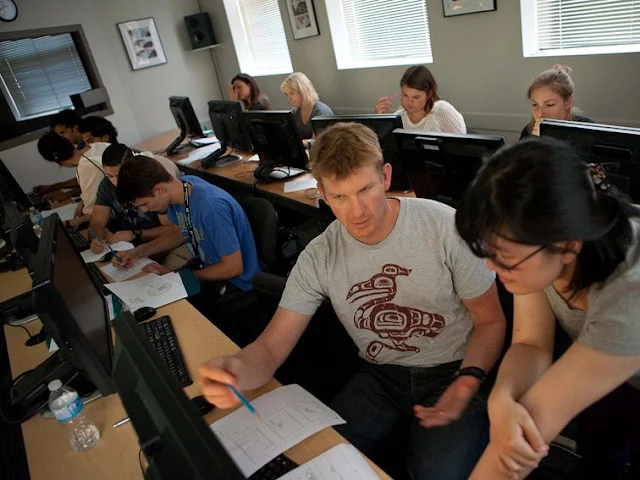Welcome to the place for teachers to share bright ideas, creative lesson plans and activities! Join in or take a look behind the scenes and see who is running this thing.
I’m Leslie – the teacher behind TeachJunkie.com. I’m excited that you’re a reader and wanted to welcome you. Like you, I find tons of inspiration from what other teachers share onlineand that’s the whole reason Teach Junkie exists!
I wanted to welcome you by letting you know who it is behind this community of authors I feature.
I’m a kindergarten teacher at heart and I have extreme love for teachers who teach any other grade level. I’ll admit that I love you because I think it’d make me cry if I had to teach your grade – honestly. Since kindergarten is my wheel house, I share those fun stories on KindergartenWorks.com.
Right now, I am a work from home mom taking a break after 10+ years in the classroom to raise my own pack of readers. My husband (who is my high school sweetheart) and I have a preschooler, toddler and a brand new little one.
So, when you hear from me it’s most likely me trying to jam as much of my love for teaching into nap time!
WHAT I LIKE TO SHARE
One of my favorite things to do is collect lots of ideas in one place so that you save time looking for the best stuff online. These collections are some of my most popular posts! I can’t wait to share them with you.
Another favorite thing of mine is to showcase the work of other teachers. I think you’re all fantastically creative and wonderful. Really! So, if you browse the website you’ll see posts that feature other teachers too and lead you to their blogs.
Oh yes, and free stuff. I focus on sharing free stuff. That’s cool with you, I presume?
Teaching isn’t an easy profession. It’s my hope that I can be here to encourage, inspire and save you time collecting ideas so that we can all have a life outside of teaching…
Welcome to Teach Junkie – I am excited to have you join us!
WANT ME TO CURATE CONTENT FOR YOU – FOR FREE?
It occurred to me that perhaps you haven’t had a chance to scope out the over 500 posts that are currently on this blog so allow me to dig through and share the best ones with you!
That’s the benefit of getting my emails {wink} – just let me send you the good stuff and you can always hop onto Teach Junkie when you’re looking for something specific. You’ll find a wide range of topics that stick mainly to grade levels K-5.
Simply add your email address below and I’ll set you up with my free weekly newsletter.























